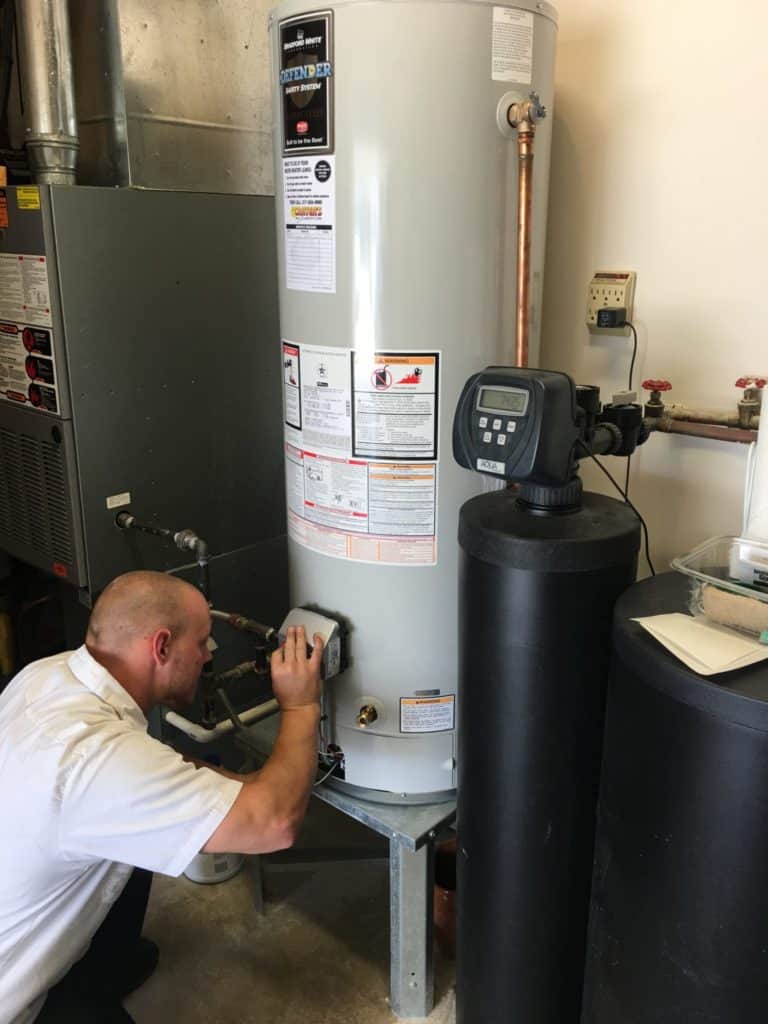Coping with the Most Frequent Hot Water Heater Emergencies
Coping with the Most Frequent Hot Water Heater Emergencies
Blog Article
Just how do you feel with regards to Common Hot Water Heater Problems?

A water heater is among the most essential fundamental devices that can be located in a house. With hot water heater, you do not need to go through the anxiety of heating water by hand each time there is a requirement to wash, wash, or the recipes. Nevertheless, there is always a possibility that your water heater would act up as with the majority of mechanical devices.
It is important to keep in mind any little breakdown and tackle it rapidly prior to points get out of hand. Many times, your water heater begins to malfunction when there is an accumulation of sediments as a result of continuous usage. As a preventative measure, periodic flushing of your water heater is suggested to stop debris build-up as well as protect against functional failing.
Common hot water heater emergencies and also how to handle them
Leaky hot water heater storage tank.
In this situation, you need to turn off your water heating system, enable it to cool down, and meticulously look for the source of the issue. At times, all you need to do is to tighten up a couple of screws or pipeline links in cases of minor leaks. If this doesn't work as well as the leak continues, you might need to employ the services of a specialist for a suitable replacement.
Varying water temperature.
Your water heating unit might start generating water of different temperatures generally ice cold or hot hot. There might be a demand to replace either the home heating or the thermostat system of your water heater.
Insufficient hot water
It may be that the water heating system can't sustain the warm water need for your home. You could upgrade your water heating unit to one with a larger capacity.
Tarnished or odiferous water
When this happens, you need to know if the concern is from the water or the container source. You are particular that it is your water heater that is damaged if there is no amusing odor when you run cold water. The stinky water can be triggered by rust or the accumulation of germs or debris in the hot water heater storage tank. When you observe this, you can try flushing out your storage tank or replacing the anode if the problem continues. The feature of the anode is to clear out bacteria from your container. Considering that the anode pole substitute requires an extensive knowledge of your water heater, you will need the aid of a professional.
Verdict
Some house owners overlook little warning and also minor faults in their hot water heater system. This only leads to further damage and a possible full breakdown of your device. You must take care of your water heater faults as quickly as they come near prevent even more expenditures and also unnecessary emergency problems.
With water heaters, you don't require to go through the stress and anxiety of heating water manually every time there is a requirement to take a bathroom, do the laundry, or the recipes. Your water heating unit could start creating water of different temperature levels generally ice scalding or cold hot. It may be that the water heating system can not support the warm water need for your apartment. If there is no funny scent when you run cold water, then you are specific that it is your water heater that is malfunctioning. The stinky water can be created by rust or the build-up of germs or debris in the water heating system storage tank.
Common Water Heater Issues and What You Should Do
What Type of Water Heater Do You Have?
Before we begin it’s first important that you identify the type of water heater you have on your property. There are two main types of water heaters out there: conventional and high efficiency.
Both of these types of products typically use either gas or electricity to heat power. There are also solar water heaters that use a thermal collector on the roof or yard to heat the water.
While these models are not as common, they can cut heating costs in half. In this article, we will focus on conventional and high efficiency.
How Do My Electric and Gas Water Heater Work?
Though they look similar, electric and gas water heaters work very differently. It’s important to know their basic function because often problems can be specific to the heating source.
In the electric model, a thermostat on the side of the machine detects the temperature of the water in the tank. When the temperature needs to rise electricity flows to a heating element suspended in the water.
Gas models also use a thermostat device — typically with a mercury sensor at the tip and an additional sensor called a thermocouple. The thermocouple detects whether the pilot light is on and controls the flow of gas.
When the thermostat drops below the appropriate level gas is released which becomes ignited by the pilot light. The flame heats the bottom of the water tank which causes hot water to rise and cold water to drop.
This natural circulation continues until the water reaches the desired temperature. Then, the thermostat triggers the gas control valve to shut off the flow of gas.
What Are the Most Common Issues and How Do You Fix Them?
https://happyhiller.com/blog/common-water-heater-issues-and-what-you-should-do/

As a fervent reader on Warning Signs You Need Water Heater Repairs, I was thinking sharing that piece of content was beneficial. Be sure to take a moment to share this blog if you appreciated it. Thanks for going through it.
Pipe issues? Connect. Report this page